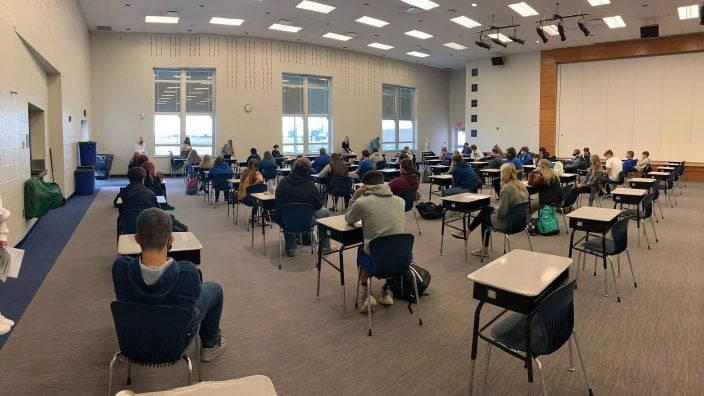Applications for Ohio Farm Bureau Health Plans now available
Members have three ways to apply: contacting a certified agent, calling 833-468-4280 or visiting ohiofarmbureauhealthplans.org.
Read MoreHow on earth does anyone teach historically hands-on agriculture classes in the topsy-turvy world of a pandemic?
It takes scores of daily emails, video classes, Zoom meetings, collaborations, morning temperature checks, plus gallons of hand sanitizer and almost as much caffeine. The most important ingredients are resilient, resourceful schools, teachers and students.
So said three agricultural teachers in mid-November, who were runners-up in Nationwide’s 2020 Golden Owl competition of Ohio’s outstanding ag teachers.
“It feels very much as if I am driving a car with the gas pedal to the floorboard, but the parking brake is on,” said Erin Wollett, FFA teacher at Cardington-Lincoln High School in Morrow County. The Delaware County Farm Bureau member added, “We are trying so hard to adapt, overcome, pivot, plan and be creative. The trouble is that there is so much that is out of our control.”
FFA teacher and Williams County Farm Bureau member Hannah Everetts of Edon Northwest High School agreed.

“The most challenging has been adapting to constantly changing rules about how we can stay safe, and trying to combat the rumors that occur almost daily about the pandemic-related issues,” Everetts said. “The unknown has been very challenging for everyone.”
Adapting to change is expected of teachers, said Jeremy Ryan, West Muskingum High School FFA instructor.
“Every year it’s something new,” he said, referring to new state mandates and other issues typical of every school year.
Teaching during the pandemic, however, presents unique and onerous challenges. Ryan, the only one of the trio teaching at a school with virtual and live classes, usually needs separate lesson plans. With only 240 of the 420 students in the building, “We have a totally different vibe,” Ryan said.
The schools look different, too, due to social distancing, seating changes and rearrangement of classrooms, shops and lunch rooms.
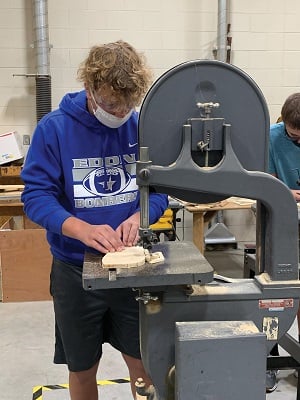
Health safety for the in-school classes is paramount and adds steps to the daily routine. Hand sanitizer is abundant and required. Desks and other surfaces are frequently wiped down with disinfectant as well.
In shop areas, safety goggles, welding helmets and other personal safety gear are assigned to specific students, said Ryan, who is a Muskingum County Farm Bureau member.
“At first, students were very anxious and quiet about how they were spaced in our classrooms and the lunchroom,” Everetts said. “Now that they are used to this type of environment, it’s become their new normal. They still talk to one another and socialize in the way they always used to, even though they are spaced out. ”
Socializing occurs to a degree among the isolated students attending online classes.
“Sometimes getting a Zoom call and letting the students visit is good,” Ryan said. “My students’ mental health is critical.”
When it’s time to get serious, virtual classrooms have their own set of standards, such as students being on camera during the session. Still, some students don’t always make video calls, Ryan said.
Among other online challenges are 100 to 150 emails daily, limited computer equipment in some homes with multiple students per family and slow internet service. Because classes are recorded, students can view them outside regular school hours.
“We find ways to get the knowledge and information to the students,”
Ryan said.
Ironically, pandemic strictures have positive consequences, besides safety.
“We’ve been taking advantage of allowing more students to participate now that travel, time out of school and cost are not limiting factors,” said Everetts. “It has been a silver lining to have the ability for all of our students to participate (virtually) in some events that they wouldn’t normally be able to.”
Hands-on activities are adapted to fit the rules. For example, Wollett typically had students make a “soil sundae” to better understand the basic components of the ground under their feet. The edible project involves such things as chocolate and vanilla pudding for soil layers and candy corn for seeds. This year she created individual packets of materials to assemble, instead of letting students help themselves to the ingredients as in past years.
Teachers swap ideas and help each other through social media groups and other online ag teachers’ sites. Plus, there’s a network of people ag teachers know from the community, contests, awards programs and other contacts made during a typical school year.
“It’s helpful to know you’re not alone,” Everetts said.
Collaboration extends across educational specialties. Ryan and the Spanish teacher across the hall confer frequently about what’s working and what’s not. That didn’t happen before the pandemic.
Ryan also sees a spirit of collaboration among student groups, such as the National Honor Society, Key Club and FFA. The members are looking for new joint projects to replace traditional ones, such as blood drives, which won’t work with COVID-19 restrictions.
“Our students are resilient, and they’re looking to find ways to do things,” Ryan said. “I think that’s fantastic.”
Photos submitted by Hannah Everetts


Members have three ways to apply: contacting a certified agent, calling 833-468-4280 or visiting ohiofarmbureauhealthplans.org.
Read More

Legacy nutrient deductions enable new farmland owners to claim deductions on the nutrients within the soil on which healthy crops depend.
Read More

Farmers, agribusinesses and community members are encouraged to nominate their local fire departments for Nationwide’s Nominate Your Fire Department Contest through April 30.
Read More

Introduced by Sen. Paula Hicks-Hudson, SB 120 would establish the Urban Farmer Youth Initiative Pilot Program.
Read More

Gases, vapors, and fumes can all create risk. How can we measure and protect ourselves from them?
Read More

The Ohio Farm Bureau’s Young Agricultural Professionals State Committee has named its 2026 leadership and the individuals who will be serving on the state committee for 2026-2028.
Read More

The Ohio Farm Bureau Foundation has multiple scholarships available to Ohio students from rural, suburban and urban communities who are pursuing degrees with a connection to the agricultural industry.
Read More

With 100% bonus depreciation now permanent, farmers can deduct the full cost of a new agricultural building in the year it’s placed in service.
Read More
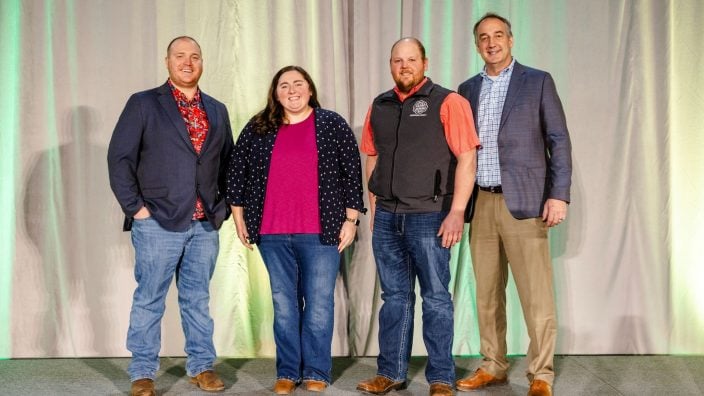
Lincoln Deitrick was named the Outstanding Young Farmer, Denver Davis won the Excellence in Agriculture Award, and Margaret Houts won the Discussion Meet.
Read More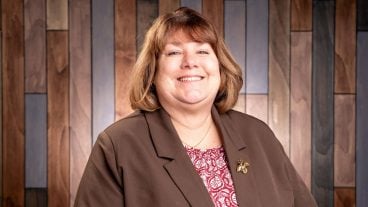
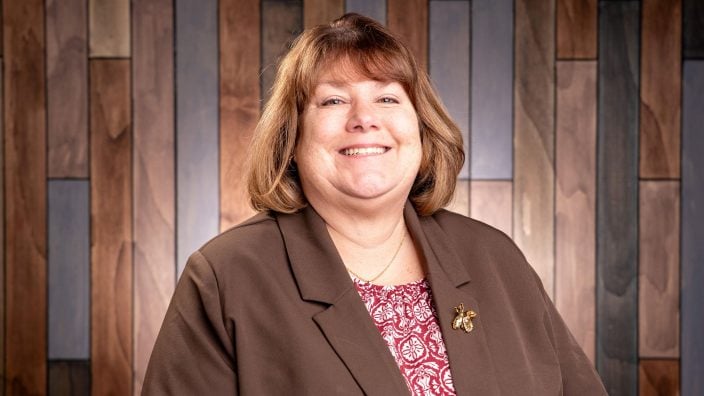
Michelle Downing of Franklin County has been named finance director of county operations for Ohio Farm Bureau.
Read More